“Messiah” is an oratorio composed by George Frederic Handel in 1741 and first performed in Dublin, Ireland. The scriptural text that accompanies the work is based on the King James Bible and tells of the coming of Jesus Christ as the savior of humankind, Christ’s passion and crucifixion, and his resurrection and ascension into heaven. It is one of the most continuously performed choral works in musical history, with most performances taking place during the Christmas or Easter seasons.
Pastors’ Column

Each week one of our pastors or staff members writes a column observing what is going on in our congregation, the Church and the world, and offering reflections on the Christian life and faith. Through this series of columns, we hope to connect your and our story to the enduring story of Christ; to offer pastoral reflections on our ongoing congregational life and mission; to report on news of the Presbyterian Church and Church universal; and to invite further reflection and deeper discipleship. We welcome your comments and suggestions. In other words, our words here are an invitation to continue the conversation.
“Just to confirm, there will either be a calf or an alpaca?” Overhearing a conversation about the Live Nativity animals I had to pause and share the important observation, “There really weren’t alpacas in first-century Bethlehem.” Neither the Children’s Ministry administrator nor the owner of the local petting zoo seemed to share my concern and continued to discuss the details for our Live Nativity this Sunday.
When our children were young, they came home from Preschool with a lovely Native American Prayer for Thanksgiving with simple hand movements:
May the Great Spirit (fingers pointing skyward making a big circle over your head) who has been with us in the past (hand over shoulder pointing behind you) and will be with us in the future (arm outstretched in front) bring us great joy (right hand over the heart).
May the Great Spirit, who has been with us in the past and will be with us in the future, bring us great joy!
With a consciousness raised about our complicated Native and Euro-American history, that simple prayer offered in our home for long years on Thanksgiving Day inspired me to research other Native American Prayers to incorporate into a Prayer of Thanksgiving for this year.
For organizations and professions that are driven by the seasons, there is often the sense that we can’t actually appreciate the season we are in because we have already moved on to prepare for the next one. The Church is no exception. Planning for fall classes happens in the spring. Lenten Devotional submissions are written in the fall. Summer Vacation Bible Camp and Youth Mission Trips are all organized during the winter.
In two weeks we celebrate the return of a beloved Bryn Mawr Presbyterian Church tradition – the Thanksgiving Pancake Breakfast! Due to the pandemic, we have canceled the event the past two years, but it's finally time for the return of this delightful Youth Ministry-hosted event.
It was a Wednesday afternoon, and while members of the Children's Choir and I sat on the steps of the Chancel, we were surrounded by different translations of Hebrews 12:1-3. The sheets of paper were laid out across the well-worn wood and multicolored bluestone.
The work of “mission” is complicated. There are all kinds of ways that we try to organize ourselves to “do” mission and to make it less complicated, but the longer I have been doing mission, the more comfortable I have become with its complications. These complexities do not discourage and overwhelm me, at least on my best days. But the challenging aspects of doing mission mean that we are called to always be learning, growing and examining the how, why, where and when of the work we do in mission as a church.
- Hope Grows Here
- Fifty Years of Faithful Membership
- Animals Blessing Us
- At Last
- Reflective, Responsive Gratitude
- The Goals of BMPC Youth Ministry
- Gathering and Focus Groups
- Renewing Our Vows
- At the Start of a New School Year
- Deep Work
- The Power of Music
- Summer Camp FAQs
- Johnsonburg 2022
- Coming to the Rescue
- Staying Afloat with Prayer
- BMPC Summer Carillon Concert Series
- VBC 2022
- Traveling Mercies
- Johnsonburg Camp Day
- Changing Preaching Plans




